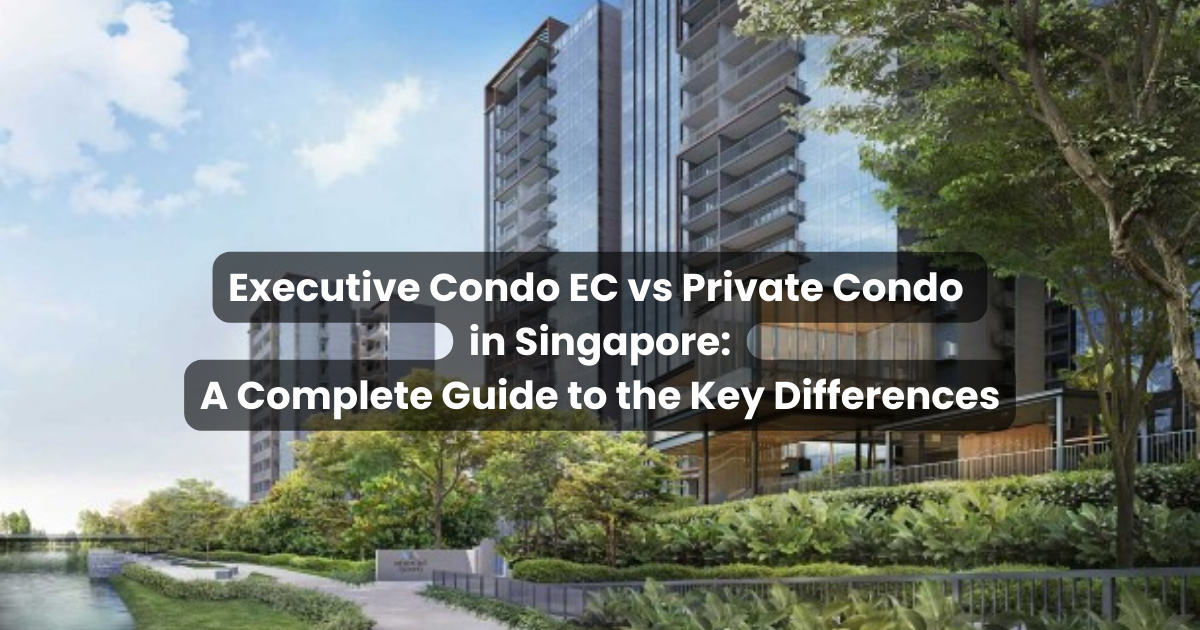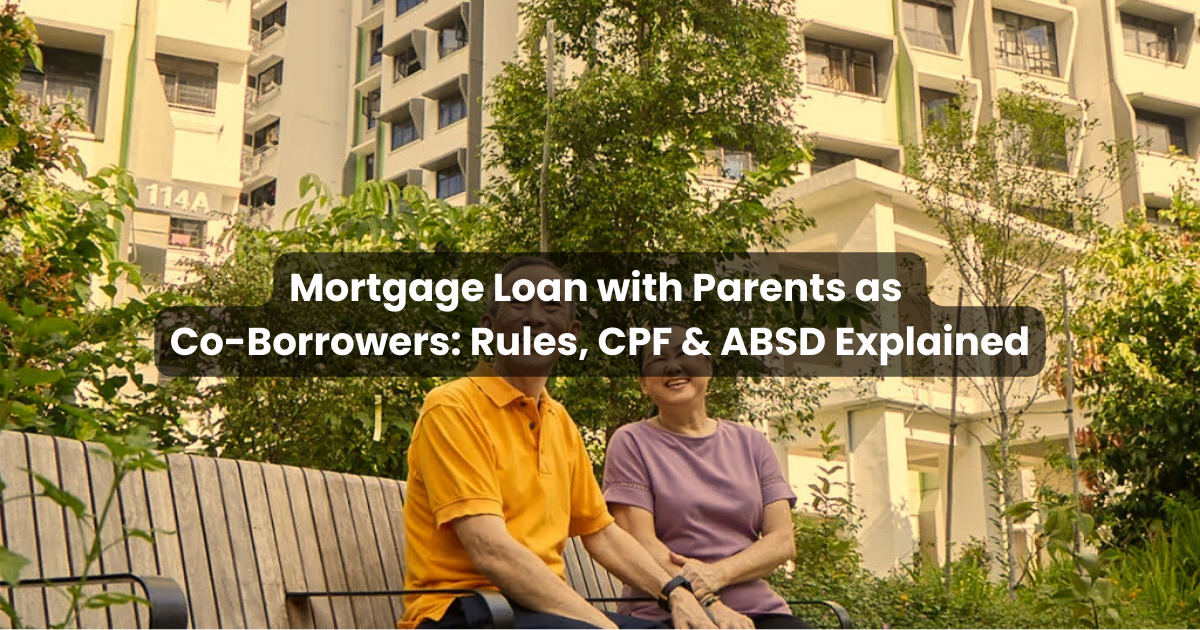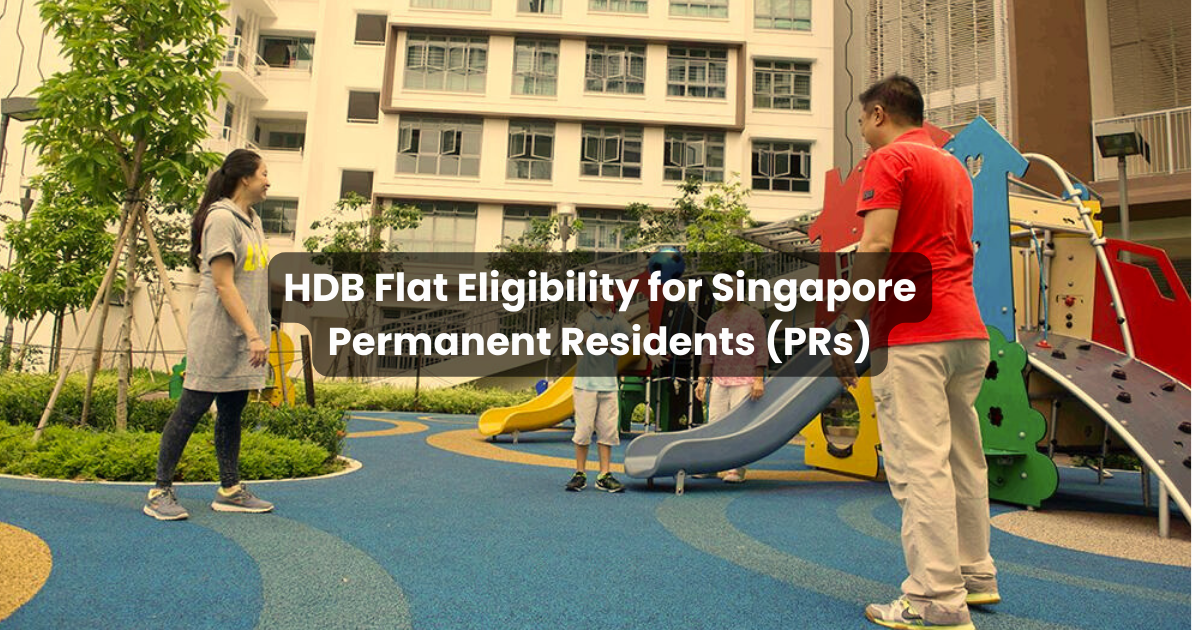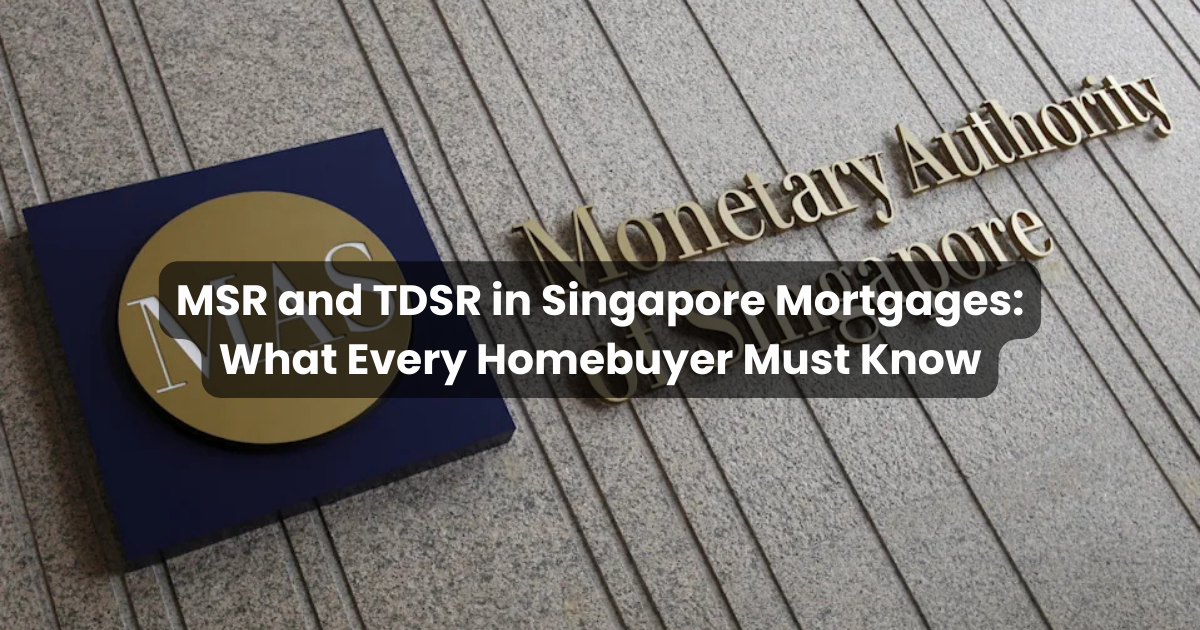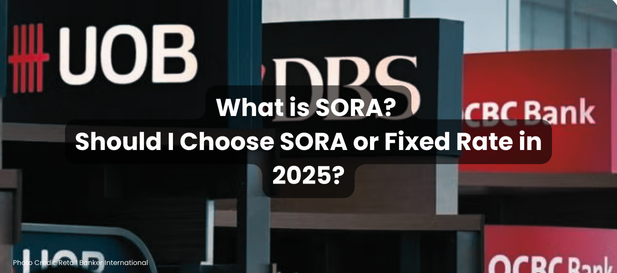- Insights & Updates
Latest News
By Chief Analyst
September 16, 2025For many aspiring homeowners in Singapore, one of the most important decisions is whether to purchase an Executive Condominium (EC) or a Private Condominium (Pte Condo). Both offer condominium-style living with facilities such as swimming pools, gyms, and landscaped gardens. However, they differ significantly in terms of eligibility, affordability, ownership restrictions, and investment potential.
ECs occupy a unique “sandwich” category, built by private developers but subsidised and regulated under HDB rules for the initial years. By contrast, private condos are entirely market-driven, with no government restrictions. Understanding the differences is crucial, as the decision can affect not only your lifestyle but also your financial outcomes in the years ahead.
This article provides an in-depth comparison of ECs and private condos across eight key dimensions: Minimum Occupation Period (MOP), ownership restrictions, grants, pricing, loan financing, resale & investment potential, payment schemes, and availability.
| Executive Condominium | Private Condominium | |
| Eligibility | Must meet HDB eligibility (e.g. family nucleus, income ceiling ≤ S$16,000/month) | Open to anyone, including foreigners |
| Minimum Occupation Period (MOP) | 5 years (collective TOP date) | N.A |
| Ownership Restrictions | Cannot buy if already own private property (must dispose first for a period of more than 30 months) | No restrictions |
| Foreigner Ownership | PR able to buy after 5years MOP (10years for Foreigner) | No restrictions |
| Grants | CPF Housing Grant Scheme | N.A |
| Pricing (PSF) | Relatively Cheaper by 20-30% than nearby Private Condo | Slightly more expensive |
| Loan Financing | Need to Meet both MSR (30%) and TDSR (55%) | Need to pass TDSR (55%) |
| Resale & Investment Potential | Higher Potential in general | Depending on Area and Launch price |
| Payment Scheme | Deferred or Progressive Payment Scheme | Deferred(If Developer allows) or Progressive Payment Scheme |
Minimum Occupation Period (MOP)
- Executive Condo:
ECs come with a 5-year MOP, similar to HDB flats. During this period, owners must physically occupy the unit and cannot sell or rent out the entire apartment. After the MOP, ECs can be sold to Singapore Citizens (SCs) or Permanent Residents (PRs). Full privatisation occurs only after 10 years, when ECs can be sold freely to foreigners. - Private Condo:
Private condos have no MOP. Owners can sell or rent out immediately after purchase (subject to stamp duty rules such as ABSD). This flexibility makes private condos attractive for investors and those who may not wish to commit to long-term occupation.
Ownership Restrictions
- Executive Condo:
Buyers must meet HDB eligibility conditions, including:- At least one applicant is a Singapore Citizen.
- Family nucleus requirement (e.g., Public Scheme, Fiancé/Fiancée Scheme).
- Income ceiling of $16,000 household income per month.
- Foreigners cannot buy until after the 10th year of completion.
- At least one applicant is a Singapore Citizen.
- Private Condo:
- No restrictions. Both locals and foreigners can purchase.
- No income ceiling or family nucleus requirement.
- No restrictions. Both locals and foreigners can purchase.
Grants
- Executive Condo:
Eligible first-time buyers can tap on CPF Housing Grants of up to $30,000, depending on income levels. This lowers the effective entry price and makes ECs an attractive stepping stone into private housing. - Private Condo:
No government grants or subsidies apply. Buyers must rely solely on their own savings and CPF funds.
Pricing (PSF)
- Executive Condo:
ECs are typically priced 20 – 30% lower per square foot (PSF) than comparable private condos in the same vicinity. For example, an EC might launch at $1,200 – 1,300 PSF, while a nearby private condo could command $1,600 – 2,000 PSF. This discount reflects the government’s land cost subsidy and the restrictions during the first 10 years. - Private Condo:
Prices are fully market-driven. Depending on location and branding, PSF can vary widely, from $1,600+ PSF in the Outside Central Region (OCR) to well above $3,000 PSF in the Core Central Region (CCR).
Loan Financing (MSR vs TDSR)
- Executive Condo:
EC buyers must finance their purchase through a bank loan (HDB loans are not allowed). Two rules apply:- Mortgage Servicing Ratio (MSR): Housing loan repayments cannot exceed 30% of gross monthly income.
- Total Debt Servicing Ratio (TDSR): All monthly debt obligations (including car loans, credit cards, and housing loans) cannot exceed 55% of gross monthly income.
- Mortgage Servicing Ratio (MSR): Housing loan repayments cannot exceed 30% of gross monthly income.
- Private Condo:
Only TDSR (55%) applies. There is no MSR cap, giving buyers more borrowing flexibility, provided they stay within the 55% threshold.
Resale & Investment Potential
- Executive Condo:
ECs often show strong capital appreciation because of their lower entry price. Many ECs, once privatised, have resale values approaching or even surpassing private condos in the area. However, liquidity is limited during the first 5 years, and resale is available to foreigners only until the 10th year. - Private Condo:
Private condos are highly liquid. They can be sold at any time, and their value is not tied to MOP or privatisation timelines. Investors also benefit from the ability to rent out units immediately. However, higher entry prices can mean smaller percentage gains compared to ECs.
Payment Scheme (Deferred vs Progressive)
- Progressive Payment Scheme (PPS):
- Default for both ECs and private condos.
- Buyers make payments progressively based on the stage of construction (e.g., foundation, structural completion, TOP).
- Reduces interest cost as the loan is disbursed gradually.
- Default for both ECs and private condos.
- Deferred Payment Scheme (DPS):
- Available for selected developments (mainly private condos, and occasionally ECs near completion).
- Buyers pay a lump sum closer to completion, which helps cash-flow planning.
- However, DPS usually comes with a 3% price premium on the property purchase price.
- Available for selected developments (mainly private condos, and occasionally ECs near completion).
Availability
- Executive Condo:
EC supply is limited. Only a handful of new EC launches are released each year, depending on government land sales. This scarcity keeps demand high and contributes to capital gains once projects reach MOP. - Private Condo:
Availability is much wider, with dozens of launches each year across different regions and market segments. Buyers have greater choice in location, size, and project type.
Conclusion
The choice between an Executive Condo and a Private Condo boils down to your financial profile, eligibility, and long-term goals.
- If you are a Singapore Citizen couple earning below $16,000 in household income and planning to stay put for at least 5 to 10 years, an EC offers the best value for money. The upfront grants, subsidised pricing, and long-term appreciation make it an excellent stepping stone into private property ownership.
- If flexibility, investment, or prestige is your priority, and you can afford the higher upfront costs, a private condo offers unmatched convenience. With no MOP, no ownership restrictions, and wide availability, private condos provide immediate liquidity and rental opportunities.
Ultimately, both property types have their merits. What matters is aligning your choice with your lifestyle needs, financial capacity, and investment horizon.
Explore related content by topic
MSR and TDSR in Singapore: The Complete Guide to Buying HDB or Private Property
The Mortgage Servicing Ratio (MSR) limits monthly housing instalments to 30% of gross income for HDB and new EC buyers, while the Total Debt Servicing Ratio (TDSR) caps total monthly debt repayments at 55% for all property types. These measures safeguard affordability, curb speculation, and protect households from over-borrowing
In short, choose fixed if you value peace of mind. Choose SORA if you want to ride the market downward. SORA (Singapore Overnight Rate Average) is fast becoming the dominant benchmark for floating-rate home loans in Singapore. It is grounded in actual overnight interbank lending volumes, making it more transparent and stable. With global interest rates easing, SORA is flexing its potential as a smarter, fairer benchmark

